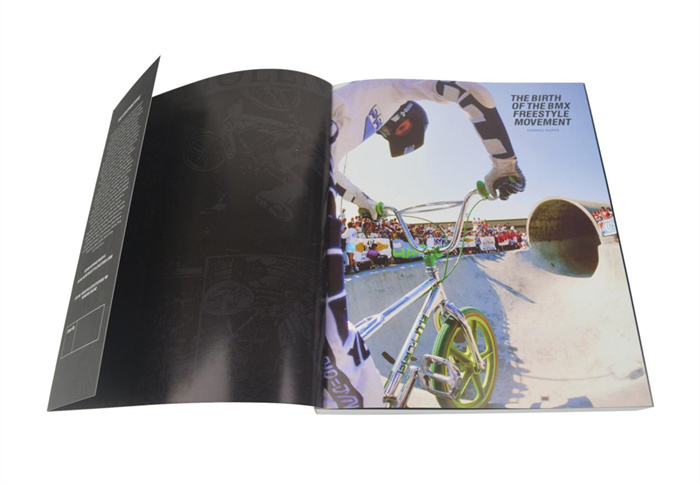Hardcover VS paperback: understanding the differences and choosing the right book format for you.
When publishing a book, choosing the format is a crucial decision that can impact the book's success. The two most common book formats are hardcover and paperback. Although they both serve the same purpose, there are significant differences between the two. In this article, we will explore the differences between hardcover and paperback books and help you choose the best format for your book.
What's hardcover books?

Hardcover or hardback books, refer to books that have hard covers made of thick cardboard or stiff materials such as leather or cloth. The pages are bound together, and the spine is glued and sewn to the cover. The cover is often designed to be visually appealing and can be printed with graphics, text, and images.
What's paperback books?

Paperback books, or softcover books, are books with a flexible paper or soft cover. They are lightweight and easy to carry, making them popular for travel and casual reading. The cover is less durable than a hardcover, and the spine is glued rather than sewn.
Hardcover vs paperback: the real difference?
When it comes to book binding, there are two primary options: hardcover and paperback. The real difference between the two lies in the cover and binding method used.
Hardcover books, as the name suggests, have a hard cover made of sturdy material such as cardboard or leather,cloth. The pages are attached to the spine of the cover through a process called case binding. Which involves folding the pages into sections and sewing or gluing them to a reinforcement material (usually a strip of cloth). The cover is then wrapped around the finished pages, with the spine glued securely to the back of the cover. The result is a durable, long-lasting book that can withstand multiple readings and handling.
In contrast, paperback books have a soft cover made of a thin, flexible material such as paper or laminated cardstock. The pages are typically attached to the spine through a process called perfect binding. Which involves milling the edges of the pages and gluing them to the spine of the cover. This creates a smooth, uniform edge along the spine. Paperbacks printing are generally less expensive to produce than hardcovers. And paperbacks are easier to carry around due to their lighter weight and more flexible cover.
In summary, the real difference between hardcover and paperback books lies in the materials and binding method used to construct the cover. Hardcover books have a durable, long-lasting cover made of hard material. Paperback books have a lightweight, flexible cover made of soft material.
Pros and Cons of hardcover book

Hardcover books have been a staple of the book industry for centuries, and they continue to be a popular choice for readers and collectors alike. But, like any book format, hardcovers have both advantages and disadvantages.
Pros of hardcover book:
Durability: Hardcover books are known for their durability. This is because hardcovers are made with sturdier materials than softcovers, making them less prone to damage from wear and tear.
Aesthetics: Hardcover books are often seen as more aesthetically pleasing than softcovers. The hard exterior and dust jacket can be beautifully designed, adding to the overall appeal of the book.
Collectability: Hardcover books are often seen as more valuable to collectors. Especially if they are first editions or have a unique history or signature.
Protection: Hardcover books offer better protection for their pages than softcovers. The hard covers help to prevent damage from moisture, dust, and other potential hazards.
Cons of hardcover book:
Price:Due to the cost of hardcover book printing is higher than softcover, so hardcover books are often more expensive than their softcover counterparts. That making them less accessible to some readers.
Weight: Hardcover books are generally heavier than softcovers. That making them less portable and more difficult to hold for extended periods of time.
Limited flexibility: Hardcover books are less flexible than softcovers. That making them less comfortable to hold and read in certain positions.
Unavailability: Hardcover books may not be as widely available as softcovers. As they are typically produced in smaller quantities or reserved for special editions.
In conclusion, hardcover books have their advantages and disadvantages. While they offer durability, aesthetics, collectability, and protection, they also come with a higher price tag. Added weight, limited flexibility, and sometimes limited availability. Ultimately, the choice between hardcover and softcover books will depend on individual preferences and priorities.
The Pros and Cons of Paperback Books

Paperback books have been around for a long time and continue to be a popular choice for readers. But, like any book format, paperbacks also have both advantages and disadvantages.
Pros of paperback book:
Price: Paperback books are often less expensive than their hardcover counterparts. That making them more accessible to a wider range of readers.
Portability: Paperback books are generally lighter and more compact than hardcovers. That making them easier to carry around.
Flexibility: Paperbacks are more flexible than hardcovers. That making them more comfortable to hold and read in different positions.
Availability: Paperback books are usually more widely available than hardcovers. As they are produced in larger quantities and in more locations.
Cons of paperback book:
Durability: Paperbacks are generally less durable than hardcovers. As they are made with thinner and less sturdy materials that are more prone to wear and tear.
Aesthetics: Paperback covers may not be as aesthetically pleasing as hardcovers. As they often lack the intricate designs and dust jackets of hardcovers.
Collectability: Paperback books are generally not as valuable to collectors as hardcovers. As they are often produced in larger quantities and are not typically associated with first editions or unique histories.
Protection: Paperback books offer less protection for their pages than hardcovers. As their covers are more prone to damage from moisture, dust, and other potential hazards.
In conclusion, paperback books have their pros and cons. While they offer affordability, portability, flexibility, and availability. They also come with less durability, less impressive aesthetics, lower collectability value, and potentially less protection for their pages. Ultimately, the choice between paperback and hardcover books will depend on individual preferences and priorities.
Why Most Books are Printed in Hardcover?
Hardcover books are often associated with higher quality and prestige. That making them more appealing to readers looking for a valuable and long-lasting book. Publishers also prefer hardcovers for non-fiction, academic, and reference books. As they are expected to have a longer lifespan and can hold up better with extensive use.
Why hardcover is more expensive than paperback?
Hardcover books are more expensive due to their higher production costs. It includes more durable materials, custom cover designs, and the more binding process. Hardcover books are also produced in smaller quantities than paperbacks, which can make them more expensive to manufacture.
Hardcover VS paperback: which one is suitable for my book?
Choosing the right book format depends on several factors, including the book's genre, target audience, and budget. If you're publishing a novel or a casual-read book, the paperback format might be your best choice. If you're publishing a non-fiction book or a collector's edition, hardcover might be the best option. But, keep in mind that hardcover books are often more expensive, which could impact sales and profits.
In conclusion, the choice between hardcover and paperback books depends on a variety of factors. Consider your target audience, genre, budget, and format preference when making the decision. Ultimately, both hardcover and paperback books have their advantages and disadvantages. So your decision will depend on what best serves your needs as an author or publisher. Now,contact us to get 20% off your first book.

